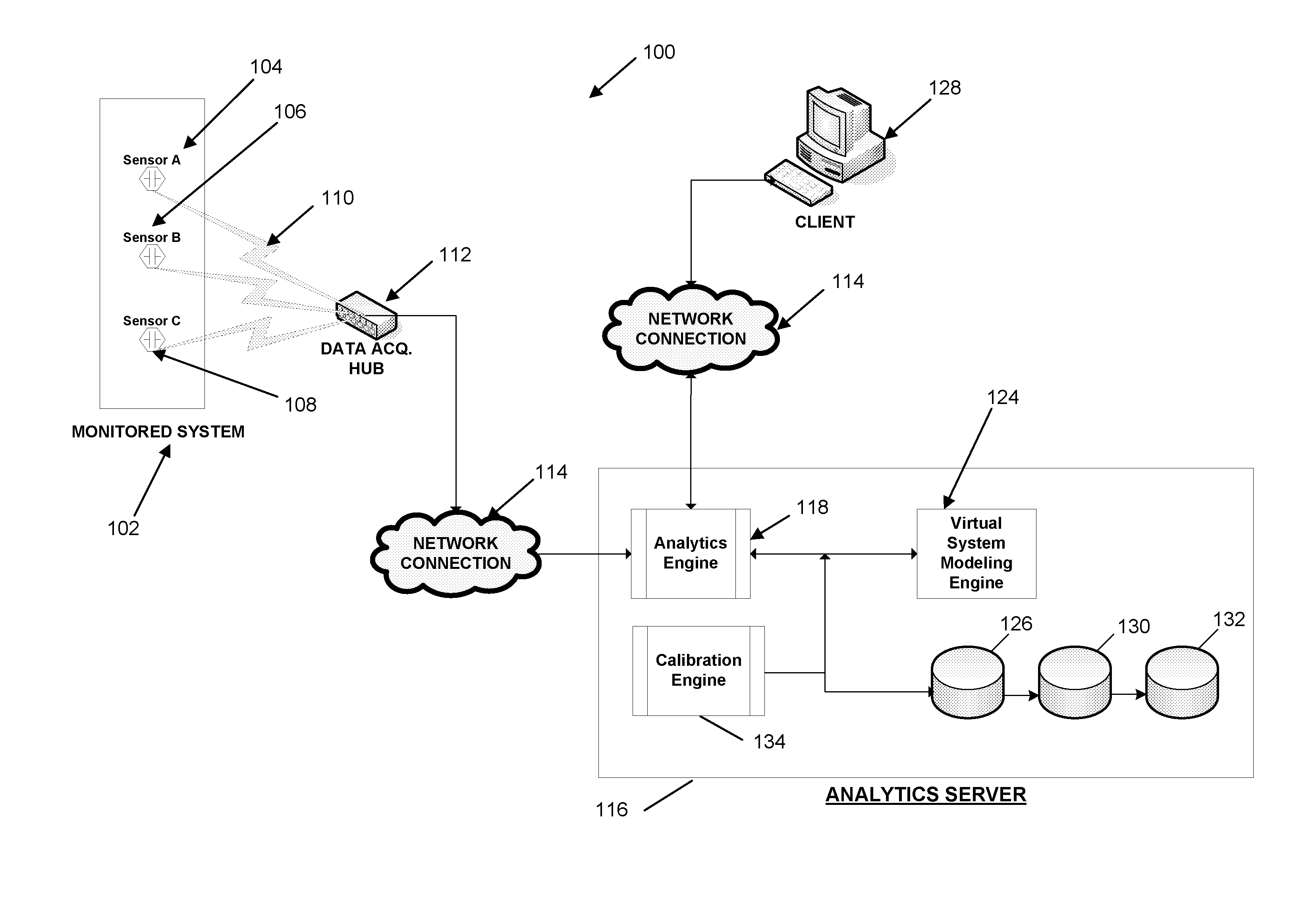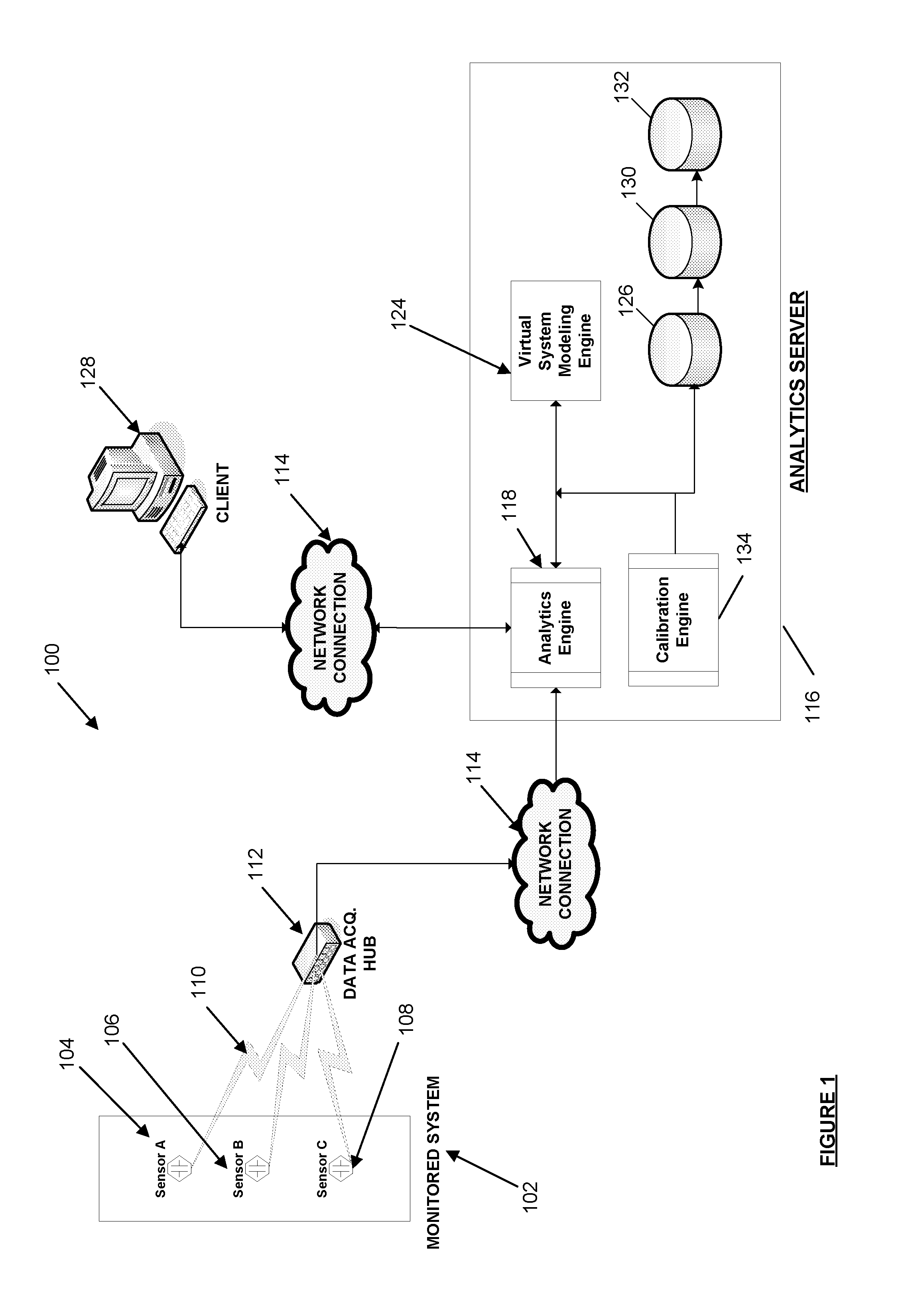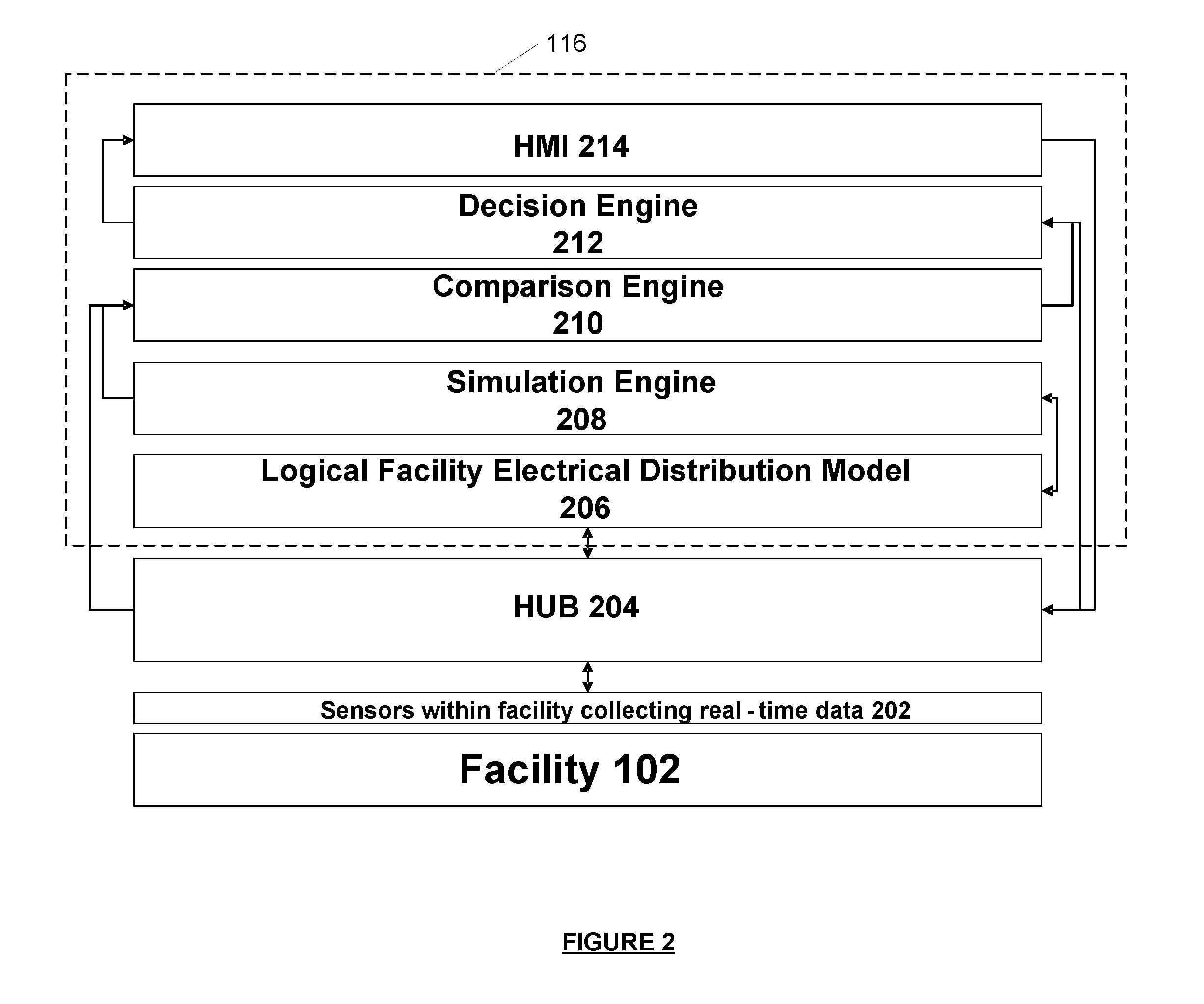Systems and Methods for Real-Time Forecasting and Predicting of Electrical Peaks and Managing the Energy, Health, Reliability, and Performance of Electrical Power Systems Based on an Artificial Adaptive Neural Network
a neural network and real-time forecasting technology, applied in the field of computer simulation techniques with real-time system monitoring and prediction of electrical system performance, can solve problems such as inability to apply real-time techniques, inability to reduce development costs and superior operation, and inability to use real-time techniques, etc., to achieve real-time operational monitoring and management, predictive failure analysis techniques generally do not use real-time data that reflect actual system operation
- Summary
- Abstract
- Description
- Claims
- Application Information
AI Technical Summary
Benefits of technology
Problems solved by technology
Method used
Image
Examples
Embodiment Construction
.”
BRIEF DESCRIPTION OF THE DRAWINGS
[0019]For a more complete understanding of the principles disclosed herein, and the advantages thereof, reference is now made to the following descriptions taken in conjunction with the accompanying drawings, in which:
[0020]FIG. 1 is an illustration of a system for utilizing real-time data for predictive analysis of the performance of a monitored system, in accordance with one embodiment.
[0021]FIG. 2 is a diagram illustrating a detailed view of an analytics server included in the system of FIG. 1, in accordance with one embodiment.
[0022]FIG. 3 is a diagram illustrating how the system of FIG. 1 operates to synchronize the operating parameters between a physical facility and a virtual system model of the facility, in accordance with one embodiment.
[0023]FIG. 4 is an illustration of the scalability of a system for utilizing real-time data for predictive analysis of the performance of a monitored system, in accordance with one embodiment.
[0024]FIG. 5 i...
PUM
 Login to View More
Login to View More Abstract
Description
Claims
Application Information
 Login to View More
Login to View More - R&D
- Intellectual Property
- Life Sciences
- Materials
- Tech Scout
- Unparalleled Data Quality
- Higher Quality Content
- 60% Fewer Hallucinations
Browse by: Latest US Patents, China's latest patents, Technical Efficacy Thesaurus, Application Domain, Technology Topic, Popular Technical Reports.
© 2025 PatSnap. All rights reserved.Legal|Privacy policy|Modern Slavery Act Transparency Statement|Sitemap|About US| Contact US: help@patsnap.com



